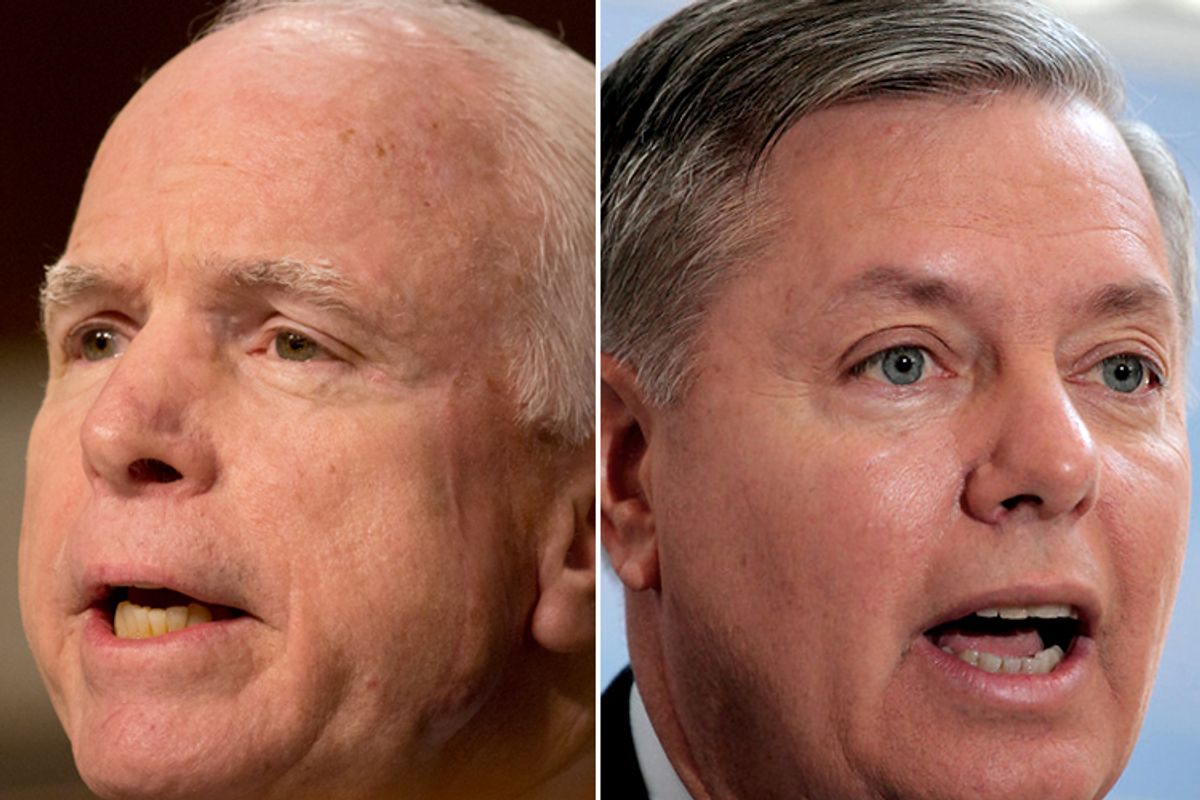Remember the Chuck Hagel fight?
If you’re reading about politics, of course you remember the fight that took up a fair amount of space in the political press over the last month.
Most Americans, however, ignored the whole thing; even among those dimly aware of it, the memory will fade rapidly. And that suggests an important lesson for Barack Obama in this flap: Don’t worry about losing a few news cycles. If it’s just about media flaps, the president has much more room for risk-taking than he may realize.
First, the evidence. There's very limited polling, but what there is suggests no one was paying any attention. A Quinnipiac poll taken at the beginning of February found a net-unfavorable rating … but with only 14 percent liking the former Nebraska senator, 18 percent not liking him, and an overwhelming 67 percent saying that they didn’t have an opinion. That’s before either of the filibuster votes on the Senate floor, but after his well-publicized Senate hearing.
That’s not unusual. There's plenty of things that capture the attention of people who are intensely interested in politics, which everyone else ignores unless they have a particular interest in it. Personnel flaps similar to the Hagel nomination are likely suspects. Think, if you remember them, of similar controversies around Van Jones, Shirley Sherrod or Peter Diamond. Each of these was all the talk of Washington for a while, and then it wasn’t. Most people, however, hardly noticed any of them.
Moreover, we know that the more people pay attention to politics, the more partisan they are likely to be. That’s important, because it means that those people who did pay attention to the Chuck Hagel nomination fight are the most likely to interpret it through their strongly held partisan biases: Democrats will support the president, Republicans will oppose him.
What all that means is that these kinds of controversies, even fairly large ones, are very unlikely to matter at all. Most people ignore them; everyone else merely sticks to their previous opinions.
And that suggests that presidents are a lot more free to take risks than they realize. Presidents tend to be very careful to avoid negative publicity, and that’s understandable. But as much as it’s surely no fun to have the national press all bashing you for something, it’s just not clear that it’s really all that bad.
Now, that obviously doesn’t mean that presidents are invulnerable. Sustained or important national failures – recessions, unsuccessful wars or having a major city drown – will all take a serious toll on a president’s approval ratings. Scandal can if it’s large enough, and close enough to the president: Ronald Reagan, for example, lost about 15 points of approval from Iran/Contra in 1986 and didn’t recover it for a long time.
Presidents also have to be careful about alienating organized groups, especially those who are either their allies or neutral. For example, the Hagel flap certainly could have hurt Obama if Jewish leaders or LGBT leaders had strongly opposed the nomination, especially if they believed it was part of a pattern of disregarding their interests. Once those groups announced they were fine with it, however, the danger to Obama was basically over.
Barack Obama should realize, then, that he has quite a bit of latitude to make “mistakes” that cause media flaps as long as they don’t produce serious policy disasters. Suppose something embarrassing comes up about an executive branch or judicial nominee, or about someone on the White House staff. Twitter will explode, but Obama will probably escape without a scratch. Suppose he pardons someone – and Obama has continued the presidential trend of using the pardon less and less – who turns out to be unworthy, or at least is made to seem so in the press. Once again, no damage to the president. It’s true as well about any of the symbolic actions a president can take, anything from whom he invites to the White House to where (and how often) he vacations to whether or not he eats broccoli. It just doesn’t matter.
This is actually a happy fact. The American people are a lot more difficult to manipulate than one might suspect, mainly because of partisanship on the one hand and basic lack of interest on the other. What really does matter is getting the policy right; do that, and the politics will usually follow.

Shares